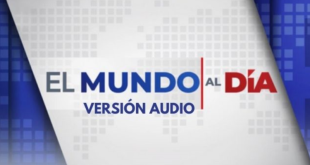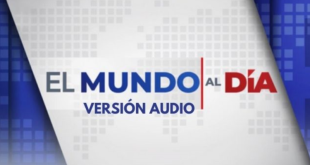The immigration reform in Argentina, announced by President Javier Milei, marks a before and after in the country’s immigration policy.
For Cubans living in Argentine territory or planning to emigrate looking for better opportunities, new measures represent a drastic change and, in many cases, worrying.
«As a result of the deep changes that President Milei is carrying out, Argentina will be a promised land for many migrants. As we did in our origins, we want to continue receiving those who come to build a freer and more prosperous country, but we have to know how to receive those willing to collaborate within the framework of the law and have the firmness to expel those who fail to comply with the rules of our territory. «
Content index

New restrictions in health and education: Cubans in the sights
One of the most controversial changes in immigration reform in Argentina is the requirement that temporary or irregular migrants pay for health and university education services.
Cubans who arrive in the country hoping to access free medical care or the public university without costs, must now present private medical insurance and assume possible academic rates if universities decide.
🇦🇷 Migratory Reformation
✅Condenado who tries to enter Argentina, will be deported by migration
✅ Who tries to enter illegally will be expelled.
✅ Foreigners will begin to collect health.
✅ National universities are authorized to charge strangers (yes … pic.twitter.com/j0zSFWBNV1– Libertarian Public TV (@TV_Libertaria) May 14, 2025
«From now on, illegal immigrants, transient and temporary residents must pay for health services, and those who enter Argentina will have to present medical insurance to guarantee that payment capacity. National universities will also be enabled for their services if they wish, respecting university autonomy. »
Although primary and secondary education is still free for all residents, this adjustment especially affects Cuban young people who seek to continue their higher training.

University gratuity, so far a symbol of the Argentine system, will no longer be a guarantee for newcomers without legal residence.
Hardening in income and permanence requirements
The DNU also prohibits the entry of any foreigner with a criminal record, even if the conviction is less than three years.
To this is added the immediate deportation for those who enter by border crossings not enabled or have committed crimes in the country.
Cubans who ever crossed unofficial routes or who have a history in their country of origin could face immediate expulsion.
«From now on, any convicted person who tries to enter the border will be rejected by the immigration authorities, and who are found in flagrance by entering unable steps will be immediately expelled. Whoever lies in any information provided in your entry will also be expelled. Argentina will not be fertile land for the arrival of criminals. »
According to the Argentine government, these measures seek to restore order, security and equity in access to state resources.
But in practice, this means that many Cubans, even those who already live in Argentina, must adjust to a much more strict legal framework so as not to be expelled or marginalized from the system.
Access to citizenship and residence
Migration reform in Argentina imposes more rigorous requirements to access citizens. They can only obtain those who legally reside for at least two years uninterrupted or make significant investments.
In addition, it is required to demonstrate sufficient livelihoods and not have a criminal record to obtain permanent residence.
«In this sense, the requirements to obtain permanent residence and Argentine citizenship will also be more severe. Argentine citizenship will only be granted to those who reside continuously for two years in the country, without abandoning the national territory. Those who enter or remain irregular will no longer be rewarded with citizens as it happened so far.
This is an obstacle to many Cubans that, for economic or legal reasons, have not yet managed to stabilize their immigration situation. The dream of obtaining an Argentine document that opens the doors to a better life becomes more distant.
The real impact on the Cuban community
Although the government ensures that these measures seek to protect citizens and guarantee the equitable use of public resources, the impact on vulnerable communities such as Cuban is deep.
Uncertainty, fear of deportation and loss of access to basic services are realities that many Cubans now must face.
«There are many immigrants of good that come and remain within the law in our country, who come to work, to forge their future. It is not fair for them that we allow those who do not comply with the same norms remain in our territory outside the law. «
In Buenos Aires, for example, many Cubans work in informal economy or as students. The new restrictions not only put their stability at risk, but they could also encourage them to return to illegality to survive.
A change with message
The Argentine government message is clear: the permissiveness with irregular immigration was over. The hardening of migratory conditions is not only legal, but also symbolic. Argentina wants to choose who receives and under what conditions.
«He who does them pays them.»
This motto becomes the axis of the new immigration policy, which seeks to clean the abuse system and ensure that only those who respect the law and contribute to the development of the country remain.
Conclusion
Migration reform in Argentina represents a radical turn in the treatment of migrants. For Cubans, this change implies new challenges and an inevitable adaptation process.
Although some will see in these measures a form of order and justice, others will feel that they lose rights and opportunities.
«At the best moment in our history, many of our grandparents and great -grandparents arrived in ships willing to sow the future of this nation. As at that time, it is time to honor our history and make Argentina big again. »
Dimecuba It is a multiservicious company focused on Cuban public. With us you can do:
Address: 3750 W 16th AVE Ste 100, Miami, FL 33012, United States. Hours: Monday to Friday from 10:00 a.m. to 8:00 p.m. from 9:00 p.m. to 5:00 p.m. Telephone: +1 786-408-2088.
https://www.dimecuba.com/revista/wp-content/uploads/2025/05/reforma-migratoria-argentina.png
#Cuban #Argentina #immigration #reform #affects
Source link
 Latest Breaking News Online News Portal
Latest Breaking News Online News Portal



